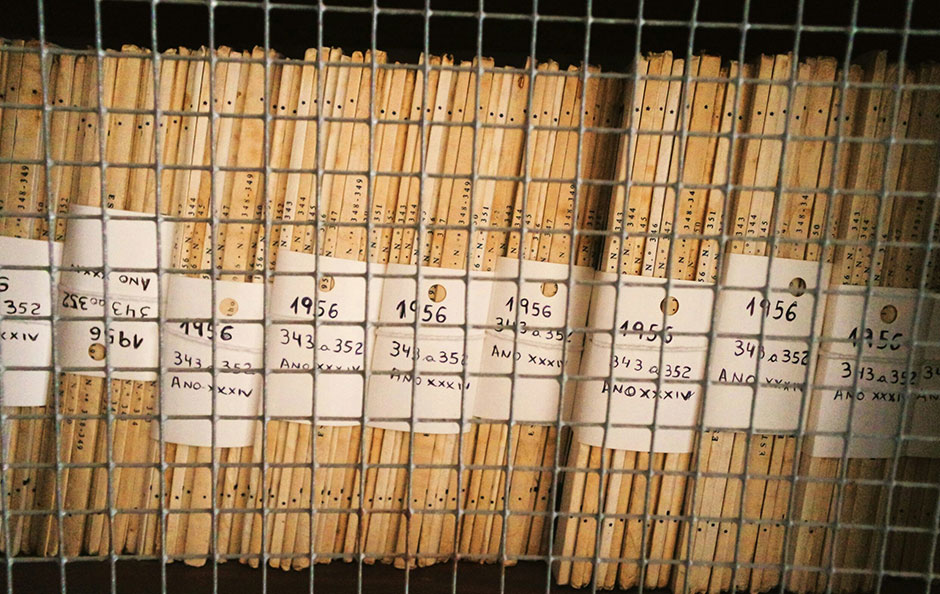How much does a Private investigator cost?
- Over 28 years of genuine trading.
- Low cost and effective - every time.
- Trusted Private Investigators
- All work backed by guarantee.
Get a free quote now
All quotes are delivered on the same day whenever possible.

How much does it cost to hire a private investigator?
When considering the services and cost of hiring a private investigator, it’s natural for individuals to inquire about the potential costs upfront. This is a reasonable concern, as private investigations are not standard products with fixed prices. Each investigation is unique, and as such, it’s rare for investigators to offer a standard flat rate.
Private Investigator costs start from £29.50 per hour and increases depending on the level of service. In today’s economic climate, where costs are continually on the rise, it’s crucial to engage in a transparent discussion about expenses with your chosen individual or company. Accurate cost estimations are essential for the success of an investigation in 2025. At UKPI, we don’t compromise on quality to cut costs. Instead, we collaborate with our clients, aligning our services with their budgets to deliver the desired outcomes.
Ultimately, the total cost will vary depending on the specific nature of the investigation required. We recommend a free initial consultation as an effective way to determine whether hiring a private investigator aligns with your needs and circumstances.
The role of a Private
investigator

The role of a Private investigator
Private investigators—professionals hired to gather intelligence and probe into diverse issues. With strategies ranging from observation to research, they produce discreet and impactful results for clients. Be it finding people, fraud allegations, or catching a cheating partner, their offerings cover an extensive range of services.
Prices start from £29.50


Some of our Private investigator services

Private Investigator Pricing
Understanding the fees and prices
Knowing private investigator costs of hiring this type of service is crucial. Fees for private investigation services depend on factors such as the type of service, duration, and resources required. Most PI’s offer free initial consultations to discuss expectations and provide a clear understanding of the costs involved.
Typically, a private detective charges an hourly rate, which can range from £30 to £85. On average, you can expect to pay around £50 to £55 per hour. Some investigators may also offer fixed fees for specific hours to ensure the success of your investigation, but in other cases, perhaps when there’s vehicle tracking involved, costs may be arranged in a more bespoke fashion. It’s important to communicate your billing preferences during the early stages of hiring a private investigator.
While the hourly rates may seem high, it is worth considering the experience and expertise of the investigator. Hiring an experienced investigator, which has specialist services such as vehicle tracking, fraud, asset tracing, missing persons, bacground checks, bug sweeping can lead to greater efficiency and quality in the investigation, potentially saving you time and money in the long run. It’s important to remember that opting for cheaper options may result in subpar results and higher overall costs.
At UKPI, we prioritise transparency in our pricing structure. We have no hidden charges on any of our investigator costs and strive to provide you with the most cost-effective solution for your specific needs. Speak with us today to discuss your requirements and get a clear understanding of the costs involved.
Talk to Us [FREE PHONE]: 0800 043 1754
Summary Table for Costs of Private Investigations
| Service | Details | Price |
|---|---|---|
| SURVEILLANCE COSTS | Our surveillance rates can vary depending on the individual specific requirements. All rates include photographic footage, reports and video evidence where required and are discussed with you before surveillance begins. Our rates are very competitive. Fees start from £ 29.50 per hour, based on a ten hour session. | From £29.50 per hour |
| PROCESS SERVICE | £ between £ 75.00 and £ 175.00 – Fixed fee which now includes mileage, travel time, 3 attempts of service, sworn affidavit or statement of service and return delivery within 48 hours as per standard terms and conditions. | From £75.00 |
| SPECIALIST PEOPLE TRACE COSTS | £ Please contact us (depending on circumstances and location) | From £POA |
| TRACE A PERSON / ADDRESS | £ from as little as £ 25.00 (BULK trace instructions) – Please contact us for details – Fixed Fee and a fast completion time with guaranteed results. | From £25.00 |
| GENERAL INVESTIGATION | Rate: £ 35 – 45 per hour – (please contact us to discuss) | From £35.00 per hour |
| FIND A PERSON FROM A TELEPHONE NUMBER | £ From as little as £ 44.25. | From £44.25 |
| FINANCIAL INVESTIGATIONS | UK Asset Search £ from £375.00 – costs vary on details required/provided by client – Please contact us | From £275.00 Costs vary on details |
| BACKGROUND CHECKS COSTS | £ from as little as £ 175.00 | From £175.00 per check |
| ENQUIRY AGENT SERVICES | Door Knocks and Verbal Enquiries £ from 35 per hour – Please contact us with your requirements | From £35.00 per hour |
| IN OR OUT OF OFFICE MEETING RATE | £ 65.00 per hour. ALL enquires and consultations via email/telephone are free. | £65.00 per hour |
| DE-BUGGING / COUNTER-SURVEILLANCE SWEEP | from £ Request a bespoke quote for further details | From £POA |
Private Detective Prices
The cost of hiring a private investigator varies depending on the type of investigation required and the amount of time and resources needed to complete it. Our hourly fees are around £ 45.00.
However, some investigations may require a fixed fee, and others may require additional expenses such as travel costs, equipment fees, and court fees. Services such as matrimonial surveillance may require custom and bespoke investigator costs depending on the complexity. Therefore, it is essential to discuss all the costs upfront with your investigator before hiring them to avoid any unexpected charges.
We feel that our services should be available to everyone, not just the wealthy.

What does a private investigator do?
BESPOKE AND CUSTOMISABLE DETECTIVE SERVICES THROUGHOUT THE UK
Conduct surveillance
Private investigators can monitor people and places to collect information on activities and behaviour.
Background checks
Private investigators can provide a detailed report on individuals to gather information about their history, employment, education, financial status, and criminal records.
Locate missing persons
Private investigators can help to locate missing persons by conducting searches, interviewing people, and using databases.
Investigate insurance fraud
Private investigators can help insurance companies to investigate fraudulent claims by collecting evidence, interviewing witnesses, and conducting surveillance.
Conduct corporate investigations
Private investigators can investigate corporate fraud, embezzlement, and misconduct by conducting forensic accounting, background checks, and surveillance.
Frequently asked questions
How much does a PI cost in the UK?
The cost of a private investigator in the UK can vary depending on several factors such as the complexity of the case, the location, and the specific services required. Generally, private investigators charge an hourly rate ranging from £40 to £100, but it is advisable to contact a few local agencies and discuss your case to get an accurate estimate.
Is hiring a private investigator illegal in the UK?
No, it is not illegal to hire a private investigator in the UK. Private investigators operate within the boundaries of the law and must adhere to legal and ethical standards in their work. However, it is important to ensure that you hire a licensed and reputable investigator who follows the proper procedures and safeguards your privacy rights.
What can a private investigator not do in the UK?
While private investigators can conduct various legal investigations, there are certain activities they cannot engage in. In the UK, private investigators cannot:
– Trespass on private property without permission.
– Access someone’s personal records, such as medical or financial information, without proper authorization or consent.
– Intercept communications (phone calls, emails, etc.) without lawful authority.
– Pose as a law enforcement officer or misrepresent their identity.
– Commit any illegal activities or engage in behavior that violates a person’s rights.
Is hiring a private investigator considered harassment in the UK?
Hiring a private investigator is not considered harassment in itself, as long as the investigator follows legal and ethical guidelines while conducting their work. Private investigators must adhere to the law and respect an individual’s privacy rights. However, if an investigator engages in illegal or unethical practices, such as stalking, invasion of privacy, or harassment, then it would be considered unlawful and can lead to legal consequences. It is important to ensure you hire a reputable and licensed investigator who operates within the boundaries of the law.
Is it worth it to hire a private investigator?
Hiring a private investigator can be worth it in certain situations. They have the skills, experience, and resources to uncover information and conduct investigations that may not be accessible to the general public. Whether it’s for personal or professional reasons, if you require reliable and discreet information, hiring a private investigator can provide valuable assistance.
Is hiring a private investigator considered harassment in the UK?
Hiring a private investigator is not considered harassment in itself, as long as the investigator follows legal and ethical guidelines while conducting their work. Private investigators must adhere to the law and respect an individual’s privacy rights. However, if an investigator engages in illegal or unethical practices, such as stalking, invasion of privacy, or harassment, then it would be considered unlawful and can lead to legal consequences. It is important to ensure you hire a reputable and licensed investigator who operates within the boundaries of the law.
We are here to help, 24/7 - 365 days of the year
Contact us now for a free, confidential, no obligation consultation










